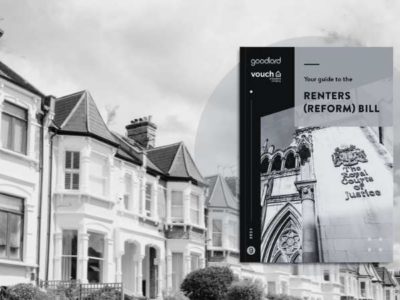Yet again the Government has shown how out of touch it is with the current property markets with its latest consultation about avoidance and evasion in the business rates system, just launched.
According to John Webber, Head of Business Rates at Colliers:
“The government’s timing is impeccable.
Just as the investment markets stall and values fall the government considers an attack on Empty Property Relief, which will make holding property even more expensive.
We can only wonder who it really believes will benefit from such measures- certainly not property investors or pension funds- and by definition the general public saving for a pension.”
The new consultation will run for 12 weeks, closing on 28 September 2023 and encourages feedback.
Whilst acknowledging most businesses behave honestly and pay their due business rates bills, the government is concerned how best to counter avoidance and evasion in the business rates system.
Business rates provide a vital source of funding for local government, helping local authorities to deliver essential local services.
In 2022/3 it raised £25 billion, and the government believes £250 million was lost to tax abuse last year.
The consultation consists of three sections.
The first focuses on specific proposals to reform Empty Property Relief, which according to the government’s research “is not working as intended” and that abuse of EPR is “the most common form of rates avoidance”.
One measure it focuses on is the third-party occupation scheme which is currently practiced and had been successfully tested in the High Court.
The Government is potentially looking to close this scheme and bring it more in line with Wales and Scotland, which will severely limit the opportunity for longer-term empty rates relief opportunities using third parties.
Other key proposals are:
- To change the reset period when a ratepayer can access repeated periods of EPR from 6 weeks to 3 or 6 months between a claim.
- To limit the number of applications for EPR per property
- To possibly give a single relief period.
- Property would need to be more than 50% occupied in the trigger occupation period.
- Empty Rates Relief, for any purpose, would become discretionary from the Local Authority
The third section of the consultation covers other general abuses of the business rates system and the fourth relates to operations carried out by rogue agents.
Rating agents are not regulated and given the complexities of the business rates system there has been an increase in rogue practices in recent years.
Colliers has already been a long-time caller for such regulation and reform.
Commenting on the overall proposals, John Webber said, “Whilst we acknowledge tax avoidance and evasion should be stamped on, we think the government has its emphasis all wrong.
The main issue with the business rates system is that it is an unfair tax, and with an UBR at 51p/£, unaffordable and unsustainable for many businesses.
No other country in Europe has such a high property tax.
The government should be spending its energy concentrating on reducing the multiplier and making the tax affordable and sustainable for the longer term.
We are particularly concerned about the attack on the Empty Rates Relief system.
The government does not seem to understand that the significant amount of long term empty commercial property in England is due to a lack of market demand and longer-term socio-economic factors, not because the landlord wants to keep it empty.
Given the decimation in the retail markets in recent years and now concerns about the office sector, property owners and pension fund institutions need all the help they can get if they are to hold property and to keep the markets functioning.
By increasing the holding costs of such property, the government is impacting on the value of everyone’s pension in the longer term.
There are also ESG issues.
If the costs of holding empty properties are so prohibitive, owners will be tempted to demolish/ vandalise/strip them out to take them out of the system and avoid paying punitive empty rates.
The unintended consequences of the proposals will mean less modest properties will be around when occupiers are ready to look for them.
And all this goes against the current view that we should be refurbishing rather than demolishing secondary buildings.
Putting Empty Rates Relief at the discretion of the Local Authority is also worrying, not only complicating and politicising the system further, but taking us back to the 1980s when some local authorities charged double for Empty Rates.
Again, an attack on property owners and pension funds eventually feeds down to pension holders. We should be looking forwards not backwards – this really is a 1980’s ‘back to the future’ idea of greedy property owners – who would have thought 13 years of a Conservative administration would have brought us back to this 1980’s Socialist Land Policy!
Colliers believe the government would do better by extending the current six months empty rates holiday to twelve months and extend from the warehouse and industrial sector to include retail and offices.
One area we do agree with the government is the need to crack down on rogue agents.
Our clients have increasingly been approached by cowboy surveyors promising them unrealistic savings in their rates bills.
Such agents often take an upfront fee and disappear without trace or tie small business into unfavourable long-term contracts.
We have long campaigned for government regulation and for a register of rating advisers, similar to the FCA, to make sure cowboy and criminal element that prey on businesses are kept at bay.
Yet if the business rates system, particularly CCA (the appeals system) was less complex and more transparent, such cowboys would not be able to get a foot in the door.
The government’s new requirements for annual returns and duty to notify, adding to the administrative burden on rate payers is only making the situation worse.
We will be responding to the consultation and voicing our concerns.
It seems that overall, this is just another way of putting additional burdens onto ratepayers but ignoring the fundamental issues of the current system.
The golden goose of business rates has well and truly been cooked and property investors and pension funds are about to get fleeced, just as values are tanking.
Making owning and holding property more expensive will impact pension funds and other long-term institutions and ultimate the value of everyone’s pension. No one will benefit.
The government should think again.”





















Comments